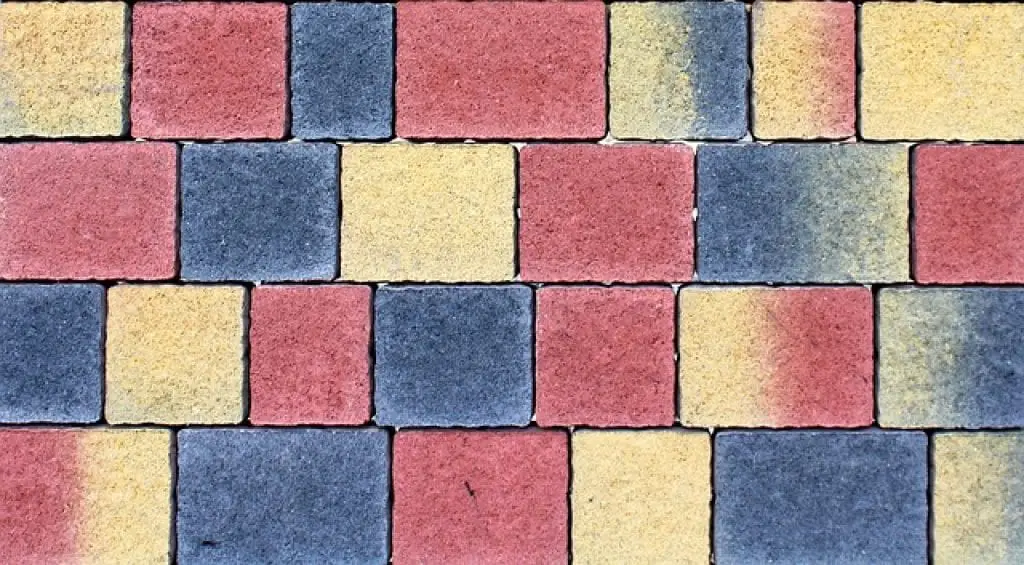Pavers are an investment like any other, and as such, it’s important to protect your investment. For pavers to look as good as new, you should use a good paver sealer. There are many benefits of sealing pavers, which include:

- Reduces growth of algae, mildew, and mold on the surface
- Reduces spalling, deterioration and cracking caused by absorption of snow, ice, and water
- Reduces fading due to surface abrasion
- Reduces staining caused by surface and water spills
- It reduces discoloration due to exposure to elements
- Reduces creation of efflorescence on the surface
- Minimizes deterioration and staining caused by fresh and salt water pool systems
- Enhances faded paver
- Minimizes surface dusting and also extends the life of pavers
These are just some of the reasons why pavers are sealed. When one chooses the right sealer the benefits are many. When sealing pavers there are a few different paver sealers to choose from:
Penetrating Sealers
If one wishes to protect their pavers without changing their look they can go for penetrating sealers. The barrier reduces water absorption and also reduces deterioration caused by absorption of water, such as efflorescence, staining, mildew, and mold.
Wet Look Sealers
If you want a wet look, you may be interested in solvent-based acrylics, but beware! You should avoid “wet look” solvent-based acrylic sealers at all costs. These are not meant for pavers, but are rather simply acrylic concrete sealers marketed as paver sealers. They do not last long and turn white quickly, so avoid them. Instead, use a water-based sealer like UreSeal H20. It will give you that stunning wet look without damaging your pavers.
How to Seal Unsealed Pavers
The surface must be dry and clean for at least 24-36 hours. A sprayer or roller should be used to apply the first layer of paver sealer. Then you should wait 12-24 hours to add a second layer and then wait for the coatings to dry.
How to Re-Seal Currently Sealed Pavers
To seal pavers which have been sealed in the past, you must know the type of sealer you currently have. Applying a different sealer can be disastrous. Once you determine what sealer you have, it should be applied as a second coat on the surface. Ensure it’s clean and dry. One should have this knowledge in order to conduct Paver Sealing Tampa, FL so as to get the best results.
You Can Check It Out to: Why Every Home Needs a Nebulizing Diffuser?
Frequently Asked Questions
What Are the Benefits of Sealing Pavers?
When it comes to sealers, there are a number of benefits that can be achieved. These include the prevention of weeds and other plants from growing through the pavers, maintenance of a clean and neat appearance, and prevention of moisture damage.
Sealing pavers also helps in prolonging their life by preventing water infiltration into the concrete surface underlying it. This can cause deterioration in its structural integrity over time, leading to cracks or even collapse. Sealing pavers not only prevent this kind of damage but also retains original coloration and reduce fading due to sunlight exposure or weather conditions.
Furthermore, sealing pavers enhances sound insulation quality as well as thermal efficiency ratings because they prevent infiltration of noise created by traffic or pedestrian movement into your home or office space. So whether you’re looking for aesthetic appeal or functional benefits – sealing pavers can provide both!
What Happens if You Don’t Seal the Pavers?
If you don’t seal the pavers, water will seep through the cracks and rot your foundation. This can lead to substantial structural damage that may require extensive repairs or replacement. Additionally, this moisture can also cause wood framing to rot and decay, which could eventually necessitate a new roof or walls.
Does Sealing Pavers Make Them Darker?
The answer is, unfortunately, no. Sealing pavers will not make them darker – in fact, they may actually become lighter in color due to the sealant. If you’re looking for a darker sealant, you’ll need to look for a product specifically marketed for this purpose.
What Are the Cons of Sealing Pavers?
Sealing pavers is a great way to protect your home and yard from water damage, but there are some potential drawbacks. One of the main cons is that it can be expensive. Additionally, sealing pavers also requires time and effort on your part which may not be feasible if you have other obligations such as work or school.
Another downside is that sealing pavers can trap moisture in the ground which could lead to mold growth or subsurface drainage problems. If this happens, it can become difficult to remediate the situation and restore normalcy to your property. Finally, even after the paving has been sealed, there’s always a risk that someone will vandalize or steal it; so security should always be a top concern when choosing this type of landscaping.
Conclusion
Pavers are more complicated than concrete since pavers are enhanced by the manufacturer. It is very important to check with the manufacturer before sealing the pavers. Some manufacturers require the pavers to be sealed after a period of one year so that the PH of their pavers can normalize while others allow the pavers to be sealed one day after the pavers are installed. Failure to follow the guidelines of the manufacturer it can result in discoloration, coating failure, and paver damages.








